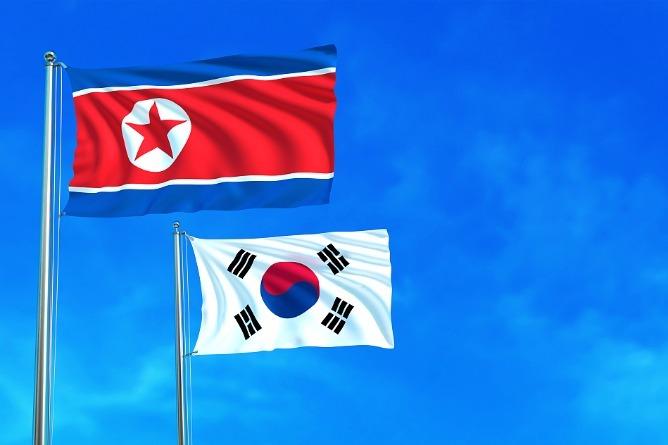 Flags of ROK and DPRK. (PROVIDED TO CHINA DAILY)
Flags of ROK and DPRK. (PROVIDED TO CHINA DAILY)
Both Pyongyang and Seoul have good reasons to be pessimistic about the prospect of inter-Korea relations in 2024. The present state of affairs on the peninsula does not allow for the kind of optimistic anticipations that generally accompany the start of a new year.
The exchange of artillery fire near the disputed maritime border of the Democratic People's Republic of Korea and the Republic of Korea on Friday and Saturday marked the return of heightened mutual animosity and may portend a further escalation of frictions. It is tempting to disregard the exchange of fire as being like similar previous incidents, with the expectation that the situation will soon cool down. But considering the latest changes in Pyongyang and Seoul's respective approach to bilateral ties, that may well be wishful thinking.
In a break from the Workers' Party of Korea's long-standing policy position, DPRK leader Kim Jong-un declared at the party's high-profile plenary session at the end of 2023 that the ROK would no longer be considered a counterpart of reconciliation and unification. The ROK was to be henceforth regarded as an enemy state. The ROK has already revived that perception of the DPRK having dropped it for a while under the previous administration. And ROK President Yoon Suk-yeol announced in his New Year's message Seoul's plan to finish the establishment of "extended deterrence" against the threat from the DPRK under the framework of the United States-Japan-ROK alliance. Prior to that, he had ordered frontline ROK troops to return fire before reporting in the event of any DPRK provocation.
The latest exchange of artillery fire was the first since Pyongyang unilaterally nullified the military agreement the two sides inked on Sept 19, 2018, on preventing armed conflict at sea. With Pyongyang openly renouncing the long-standing goal of reunification and reiterating the reality that the two Koreas are in a state of war, the situation on the peninsula is becoming increasingly fragile and perilous. Since both parties have sworn to take a tougher approach toward the other, the escalation of frictions is worrisome.
Given the historical complexity of inter-Korea relations, it won't be easy to do away with the spiral of escalation without all stakeholding parties working in concert, which seems unlikely at this point. But Beijing's call for all parties to exercise restraint will always apply. "Meaningful dialogue" between Pyongyang and Seoul may not occur any time soon with the current level of hostility. But other stakeholders in peninsula peace should urge them to refrain from further escalating tensions.
The present pattern of peninsula relations, characterized by mutual animosity and growing hostility, is a formula for disaster if the current trend continues.


